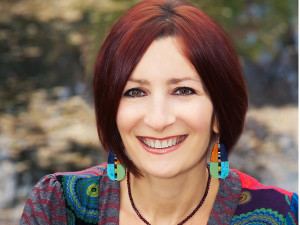In the past few decades, research has shown time and again that the state of the body and the state of the mind are intertwined, with our mental and emotional health affecting our physical health, and vice versa. In this beautifully written essay, Robin Browne shares her experience of depression and anxiety with a cancer diagnosis. Many of us who have had cancer, not to mention the arduous treatment for it, have known both the shock of the news, the settling in and finding a ‘new normal’ period, the dark times, including the fear of dying, the will to contain the anxiety of a recurrence, and maybe, over time, making meaning out of the experience. That said, all of our cancer experiences are unique: not only the biological and genetic differences in the cancer types, but our emotional health, social support, financial status (have you ever seen a chemotherapy bill!? don’t even get me started….), and many other factors will affect our experiences.
The American Cancer Society notes that about 25% of people with cancer have clinical depression, and those who have had depression previously are more likely to have it after their diagnosis. Anxiety, too, is a common response to the experience of cancer in both patients and their loved ones. But the fear and anxiety can become overwhelming for some. The American Cancer society notes that “Many people feel uncertain about the future and worry about suffering, pain, and the unknown. It’s normal to mourn changes in your body, and maybe losing the healthy future you wanted. Fears about loss of independence, changes in relationships, and being a burden to others can be too much to deal with all at once.” Loved ones may also have anxiety or anger toward the cancer, and caregivers’ stress can be overwhelming as well.
Below, I share some advice about anxiety from the American Cancer Society, and to these tips, I’d like to add (as an art therapist, I can’t help it!), creative expression: that may be painting, writing, photography, knitting, playing a musical instrument…whatever it is that takes you into a different zone for a while. These are wonderful ways to reduce stress and remain connected to activities you love. You can also process your cancer experience through artwork– sometimes it’s easier to express emotions without words, and sometimes there are no words– either on your own, but even better with a person close to you or with a therapist. I found art journalling, photography, and writing helpful; and I listened to relaxation or mindfulness audiotapes as well. When I couldn’t do anything but lay on the couch, I made sure one of my dogs was there to cuddle with me. There are many ways to feel better and grow stronger, and it’s also perfectly fine to do nothing.
The following tips from the American Cancer Society are helpful ways for the patient and her caregiver to deal with the fear and anxiety they might be experiencing:
What the patient can do
- Talk about feelings and fears that you or family members may have − it’s OK to feel sad and frustrated.
- Decide together with your family or caregiver what things you can do to support each other.
- Do not blame yourself or others when you feel anxious and afraid. Instead, look at your thoughts, concerns, and beliefs about what has been going on in your life.
- Get help through in-person or online support groups.
- Think about asking your cancer team to refer you to a counselor or mental health professional who can work with you and your family.
- Use prayer, meditation, or other types of spiritual support.
- Try deep breathing and relaxation exercises several times a day. (For example, close your eyes, breathe deeply, focus on each part of your body, and relax it, starting with your toes and working up to your head. When you’re relaxed, imagine yourself in a pleasant place, such as a breezy beach or a sunny meadow.)
- Cut down on caffeine (coffee, tea, energy drinks). It can make anxiety worse.
- Talk with your cancer team about medicines for anxiety.
What caregivers can do
- Gently invite the patient to talk about their fears and concerns.
- Don’t try to force the patient to talk before they are ready.
- Listen carefully without judging the patient’s feelings – or your own.
- Talk with the patient to decide what you can do to better support each other.
- For severe anxiety, it’s usually not helpful to try to reason with the patient. Instead, talk with the cancer team about the symptoms and problems you notice.
- To reduce your own stress, try suggestions from the list for the patient, or use other stress relievers that have worked for you in the past.
- Consider getting support for yourself through groups or one-on-one counseling.
Dealing with any serious medical illness can be difficult and frightening. Know that there are things you can do to take care of yourself: enjoyable or stress-reducing activities or getting support from loved ones, a support group or a therapist. We are all unique and will cope with illness differently; it’s not a time to be self-critical. Just take someone’s hand, and take it one step at a time.
I’m holding a retreat for cancer survivors on August 6th. If you or someone you know might be interested, please see the details here.



